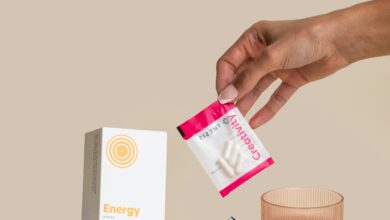The Best Supplements for Joint Health: A Comprehensive Guide

Joint health is essential for maintaining mobility, flexibility, and overall quality of life. Whether you’re an athlete, someone with a physically demanding job, or simply aging, taking care of your joints can help prevent discomfort, stiffness, and long-term conditions like osteoarthritis. While a balanced diet and regular exercise are foundational to joint health, supplements can provide additional support. This guide explores the best supplements for joint health, their benefits, mechanisms of action, and considerations for use.
Why Joint Health Matters
Joints are the connections between bones that allow movement. Over time, wear and tear, inflammation, injury, or underlying conditions can compromise joint function. Poor joint health can lead to:
- Chronic pain
- Reduced mobility
- Swelling and stiffness
- Increased risk of arthritis
Supplements can complement lifestyle changes by providing nutrients that support cartilage repair, reduce inflammation, and improve joint lubrication.
Top Supplements for Joint Health
1. Glucosamine
- What It Is : A natural compound found in cartilage, glucosamine helps maintain its structure and function.
- Benefits :
- Stimulates cartilage repair.
- Reduces pain and stiffness in osteoarthritis.
- May slow joint degeneration.
- Dosage : Typically 1,500 mg per day, often combined with chondroitin.
- Best For : Individuals with mild to moderate osteoarthritis or those seeking preventive care.
2. Chondroitin Sulfate
- What It Is : A component of cartilage that attracts water and nutrients, keeping it hydrated and resilient.
- Benefits :
- Enhances shock absorption in joints.
- Reduces inflammation and pain.
- Works synergistically with glucosamine.
- Dosage : Usually 800–1,200 mg per day.
- Best For : People with osteoarthritis or joint injuries.
3. Collagen (Type II)
- What It Is : A protein that forms the structural framework of cartilage, tendons, and ligaments.
- Benefits :
- Promotes cartilage regeneration.
- Improves joint flexibility and reduces pain.
- Supports connective tissue health.
- Dosage : 10–40 grams of hydrolyzed collagen daily, or 40 mg of undenatured type II collagen.
- Best For : Athletes, older adults, and those recovering from joint injuries.
4. Omega-3 Fatty Acids
- What It Is : Essential fats found in fish oil, flaxseed, and walnuts that have potent anti-inflammatory properties.
- Benefits :
- Reduces joint inflammation and swelling.
- Alleviates symptoms of rheumatoid arthritis.
- Supports overall cardiovascular and immune health.
- Dosage : 1,000–3,000 mg of EPA and DHA combined daily.
- Best For : Individuals with inflammatory joint conditions or chronic pain.
5. Turmeric (Curcumin)
- What It Is : A spice containing curcumin, a powerful antioxidant and anti-inflammatory compound.
- Benefits :
- Reduces joint pain and stiffness.
- Inhibits inflammatory pathways in the body.
- Enhances overall joint function.
- Dosage : 500–2,000 mg of curcumin daily, preferably with black pepper (piperine) to enhance absorption.
- Best For : Those with arthritis or systemic inflammation.
6. MSM (Methylsulfonylmethane)
- What It Is : A sulfur-containing compound found in foods that supports connective tissue health.
- Benefits :
- Reduces inflammation and oxidative stress.
- Improves joint flexibility and pain relief.
- Often combined with glucosamine and chondroitin for enhanced effects.
- Dosage : 1,000–3,000 mg per day.
- Best For : Individuals with chronic joint pain or stiffness.
7. Boswellia Serrata (Indian Frankincense)
- What It Is : An herbal extract with anti-inflammatory properties.
- Benefits :
- Reduces joint swelling and pain.
- Protects cartilage from degradation.
- Complements other joint supplements like turmeric.
- Dosage : 300–500 mg of standardized extract (containing 30–40% boswellic acids) daily.
- Best For : Those with osteoarthritis or inflammatory joint conditions.
8. Hyaluronic Acid
- What It Is : A substance naturally found in joint fluid that provides lubrication and cushioning.
- Benefits :
- Improves joint mobility and reduces friction.
- Supports cartilage hydration and elasticity.
- Often used in injectable form but also available as an oral supplement.
- Dosage : 200–400 mg daily.
- Best For : Individuals with dry or stiff joints.
9. Vitamin D
- What It Is : A fat-soluble vitamin crucial for bone and joint health.
- Benefits :
- Enhances calcium absorption for strong bones.
- Reduces the risk of osteoporosis and fractures.
- Supports immune function and reduces inflammation.
- Dosage : 1,000–2,000 IU daily, or as directed by a healthcare provider based on blood levels.
- Best For : People with low vitamin D levels or those at risk of bone-related issues.
10. Magnesium
- What It Is : A mineral involved in over 300 biochemical processes, including muscle and joint function.
- Benefits :
- Relieves muscle cramps and spasms.
- Supports bone density and joint stability.
- Reduces inflammation and oxidative stress.
- Dosage : 300–400 mg daily, preferably in citrate or glycinate form.
- Best For : Individuals with muscle tension or magnesium deficiency.
How to Choose the Right Supplement
When selecting joint health supplements, consider the following:
- Underlying Condition : Tailor your choice to your specific needs (e.g., arthritis, injury recovery, prevention).
- Quality and Purity : Opt for third-party tested products from reputable brands.
- Bioavailability : Choose forms of supplements that are easily absorbed (e.g., liposomal curcumin, hydrolyzed collagen).
- Combination Formulas : Many supplements work synergistically, so combination products (e.g., glucosamine + chondroitin + MSM) may offer convenience and enhanced benefits.
- Consult a Healthcare Provider : Always discuss supplements with your doctor, especially if you’re pregnant, nursing, or taking medications.
Lifestyle Tips for Joint Health
While supplements can be beneficial, they should complement—not replace—a healthy lifestyle. Consider these additional strategies:
- Exercise Regularly : Low-impact activities like swimming, cycling, and yoga strengthen muscles around joints and improve flexibility.
- Maintain a Healthy Weight : Excess weight puts extra stress on weight-bearing joints like knees and hips.
- Eat an Anti-Inflammatory Diet : Focus on whole foods, omega-3-rich fish, fruits, vegetables, and nuts.
- Stay Hydrated : Proper hydration supports joint lubrication and cartilage health.
- Avoid Overuse : Give your joints adequate rest and avoid repetitive strain.



